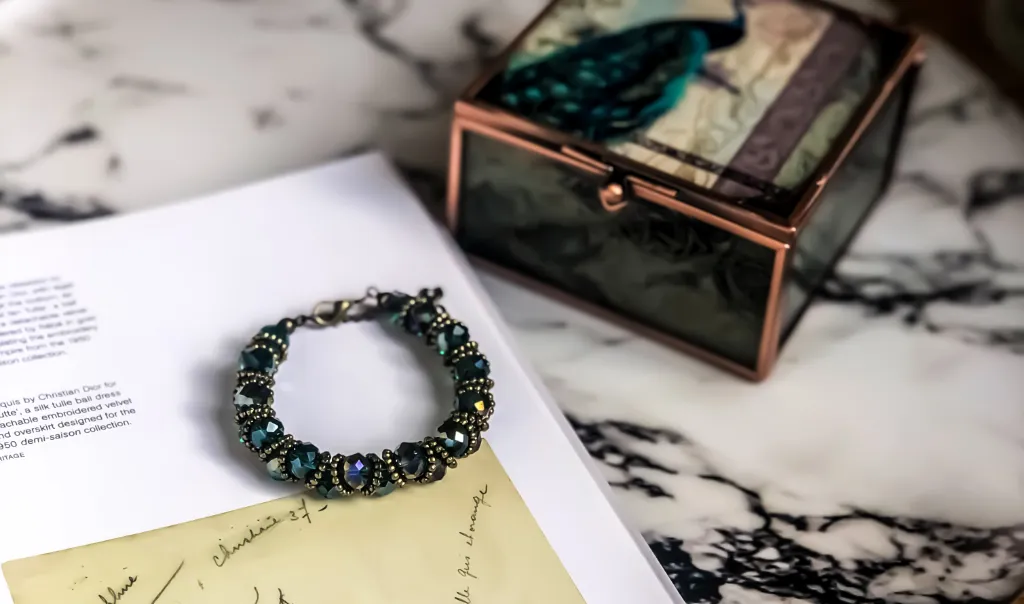Jewelry and Ethical Sourcing of Gemstones
Jewelry has been an integral part of human culture for centuries, but in recent years, there has been a growing concern about ethically sourced gemstones.

Have you ever wondered where your jewelry comes from and who made it?
Choosing ethically sourced gemstones is not only better for the environment, but it also supports local communities and ensures fair labor practices.
By making conscious choices when purchasing jewelry, you can contribute to a more sustainable and equitable industry.
| Key Takeaways |
|---|
| Ethically sourced gemstones support sustainable and fair practices in the jewelry industry. |
| Research the source of gemstones to ensure ethical sourcing and consider certifications like Fairtrade Gold and Responsible Jewellery Council. |
| Ask questions about the origin and sourcing practices when purchasing jewelry. |
| Choose recycled materials, vintage or antique pieces, or lab-grown gemstones to reduce the environmental impact. |
| Conduct independent research and verify certifications to ensure gemstones are truly ethically sourced. |
| Take proactive steps if you suspect gemstones may not be ethically sourced. |
| Choosing ethically sourced jewelry contributes to a more sustainable and equitable industry. |
Why Ethically Sourced Gemstones Matter
Environmental Impact
Mining for gemstones has a significant environmental impact, including deforestation, soil erosion, and water pollution.
Large-scale mining operations can also disrupt local ecosystems and wildlife habitats.
Ethical sourcing practices aim to minimize these negative effects by using sustainable and responsible mining methods.

Human Rights
Developing countries are often the source of many gemstones, where weak or non-existent labor laws and human rights protections prevail.
As a result, workers may be subject to unsafe working conditions, low wages, and exploitation.
Ethical sourcing aims to ensure fair labor practices and protect the rights of workers.
Supporting Local Communities
Mining can be a significant source of income for local communities, but it can also lead to displacement and disruption of traditional livelihoods.
Ethical sourcing practices aim to support local communities by providing fair wages, investing in education and healthcare, and partnering with local organizations.
How to Identify Ethically Sourced Gemstones
Research the Source
One of the most important things you can do to ensure ethical sourcing is to research the source of your gemstones.
Look for information about the mining company and their practices, including their environmental and social impact, labor practices, and community engagement.
Ask Questions
When purchasing jewelry, don’t be afraid to ask questions about the origin of the gemstones and the sourcing practices of the company.
A reputable jeweler should be able to provide detailed information about their supply chain and answer any questions you may have.
Look for Certifications
There are several certifications that can indicate that a gemstone has been ethically sourced. These include Fairtrade Gold, Responsible Jewellery Council, and Alliance for Responsible Mining.
Look for these certifications when purchasing jewelry to ensure that your gemstones are ethically sourced.
Ethical Gemstone Certifications

Fairtrade Gold
Fairtrade Gold is a certification that ensures that the gold used in jewelry has been responsibly mined and that workers have been paid fair wages.
This certification also supports community development projects in mining communities.
Responsible Jewellery Council
The Responsible Jewellery Council certification ensures responsible management of the entire supply chain for a piece of jewelry, encompassing mining, processing, and retail stages.
This certification also covers environmental and labor practices.
Alliance for Responsible Mining
The Alliance for Responsible Mining certification ensures responsible management of artisanal and small-scale mining operations, guaranteeing fair wages for workers.
This certification supports community development projects in mining communities.
Other Ways to Ensure Ethical Sourcing
Recycled Materials
One way to ensure ethical sourcing is to choose jewelry made from recycled materials.
This reduces the demand for new mining and reduces the environmental impact of the industry.
Vintage or Antique Pieces
Choosing vintage or antique jewelry is another way to ensure ethical sourcing.
Since these pieces have already undergone mining and production, they do not contribute to the new demand for gemstones.
Lab-Grown Gemstones
Finally, lab-grown gemstones are a sustainable and ethical alternative to mined gemstones.
Producing these gemstones in a controlled environment eliminates the need for mining, thereby reducing the environmental impact of the industry.
FAQ
What is the difference between fair trade and ethical gemstones?
Fair trade focuses on ensuring fair wages and working conditions for workers, while ethical sourcing encompasses a broader range of environmental and social considerations.
Can I trust all certifications for ethical gemstones?
While certifications are a helpful starting point, it’s important to conduct your own research and ask questions to ensure gemstones are truly ethically sourced.
Not all certifications are equally reliable, so delve deeper into the certification process, examining the standards, credibility, and transparency of certifying bodies.
Additionally, actively research the mining company or jeweler, looking for evidence of responsible practices and sustainable initiatives.
What should I do if I suspect my gemstones are not ethically sourced?
Take proactive steps if you suspect that your gemstones may not be ethically sourced.
Engage in personal research, inquire about the origin and sourcing practices, and assess the reliability of certifications.
By combining certification verification with an independent investigation, you can make more informed decisions and support truly ethical practices in the jewelry industry.
Final Advice
Choosing ethically sourced gemstones is an important way to support sustainable and fair practices in the jewelry industry.
By researching the source, asking questions, and looking for certifications, you can ensure that your jewelry is produced responsibly.
Additionally, choosing recycled materials, vintage or antique pieces, or lab-grown gemstones can further reduce the environmental impact of the industry.
